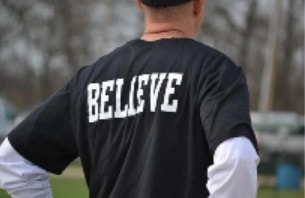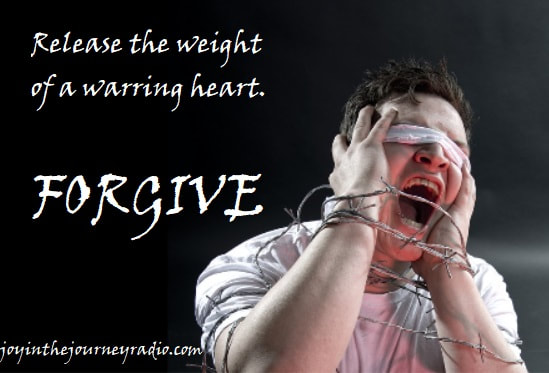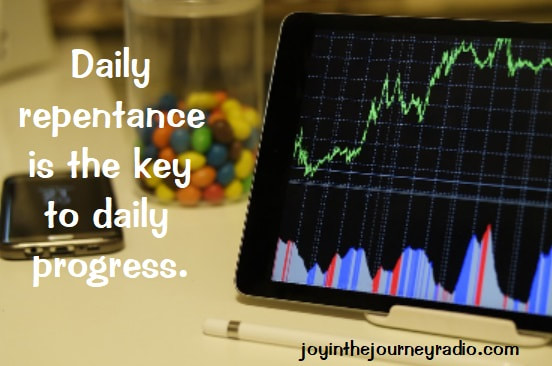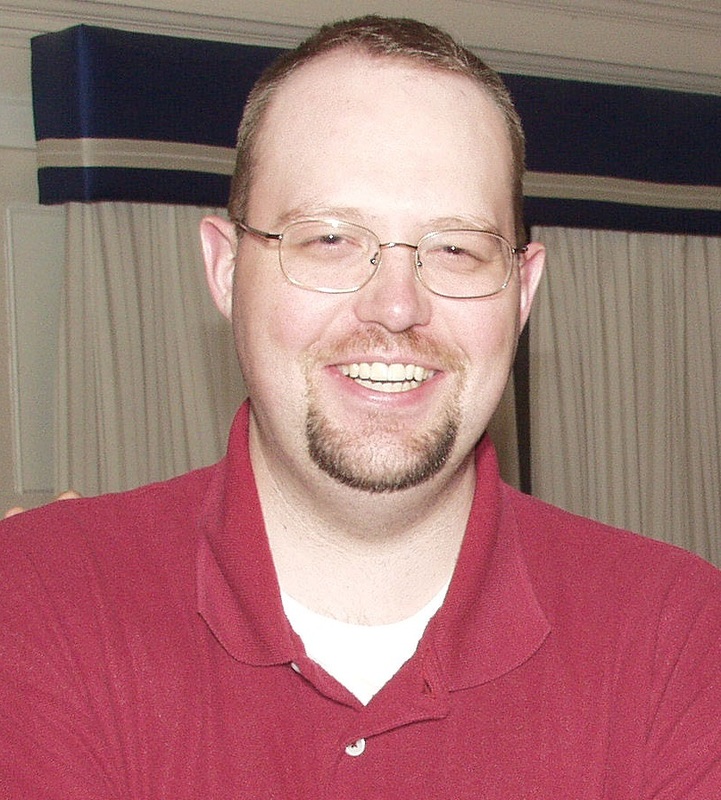But there’s another perspective of propriety. LDS singles can hold bitterness in their hearts towards someone they fault for their singleness. Never married singles can begrudge dating relationships that never worked out or simply never happened. Divorced singles can blame a former spouse. Widowed singles can embitter themselves towards whatever caused their spouse to die. Yet regardless of the cause, embittered singles can have beauty for ashes when they embrace the Savior and forgive. It begins with awareness Perhaps Sister Yee’s address spoke to me because I have my own need to forgive. My stake does absolutely nothing for singles. My leaders have responded to my pleadings by calling a stake rep who does absolutely nothing. They seem tolerant of a status quo in which sorely needed blessings are not received. Naturally, what results inside me is a roller coaster ride, and I’m not talking about my pancreatitis (although I could be)! I know I shouldn’t hold a grudge, and so I want to resist the conclusion that my leaders simply don’t care. At the same time, I struggle to see any evidence that they do care. I’m left resisting a bitterness launching itself at my door, eager to enter, and I’m tiring. In that context, Sister Yee’s recounting of the Old Testament story of Abigail seems apropos.
I like that phrase — “the weight of a warring heart.” It’s so poetic and yet so profound. It happens with belief If awareness is the first step towards forgiveness, the second must surely be belief. You must believe it’s possible for you to forgive before you’ll ever attempt it. If you truly believed it would never happen, you wouldn’t even try. This is where many who need to forgive stop. They somehow link forgiveness with the other person, the object of their bitterness and hurt, rationalizing that since said person will never comply with whatever their judgment demands, forgiveness simply isn’t possible. That link becomes especially strong when that other person offended egregiously. But forgiveness isn’t about the other person; it’s about you. It’s about stopping the canker of bitterness from blinding your vision and consuming your heart. It’s about healing the cancer that would steal your soul. Holding a grudge never punishes the other person; it punishes only you. That’s why I found Sister Yee’s personal testimony about forgiveness so moving. Her experiences encourage belief that forgiveness is possible, even when the hurt cuts very deep.
Her confession that she “still has work to do” makes relating to her experience much easier for me. And her hope for herself give me hope for myself. It continues with choice Yet the part of Sister Yee’s address I appreciate the most appears towards the end, where she reminds us of the importance of timing and adapting that timing to the individual. Not everyone heals at the same rate, and so we should be tolerant as others pursue their path of coming to Christ in their own way. That admonition to avoid judgments of timing is best applied within yourself. Extend kindness to yourself and allow your heart to take the time it needs to open to the Savior and experience the miracle of forgiveness. That kindness you extend to yourself by not insisting on a particular timetable promotes the healing you need. As Sister Yee testifies,
That last part is, I think, the key part of the journey of transformation the Savior promises. Unless you give to others what you have been denied, you’ll never be fully healed. Many LDS singles have been given ashes in their lives, but to receive beauty for your ashes, you must give beauty to others, for you always get what you give. So release the weight of your warring heart, believe forgiveness is possible, be kind with yourself, and give to others what you’ve been denied. When you do, you will find beauty from the ashes of your life. And that will bring you more joy in your journey.
0 Comments
Faith clarifies vision We all judge too much by what we see directly around us, and this feature especially manifests itself in dating. Far too often LDS singles look around for someone they’d like to date and, not seeing what they define as acceptable, quickly become discouraged. That scene repeated often enough leads to hopelessness in the future. Bright futures start with faith. Faith helps you see what’s there but not readily seen. In the context of dating, this could mean, first, you don’t see that acceptable candidates around you because they aren’t doing what you normally do and going where you normally go. When you branch out and see new vistas, you’re more likely to cross paths with them. The world is a bigger place than your own backyard. Second, faith helps you see the person you discounted may be the one you’re looking for. So many singles insist on having the “perfect” partner that they reject knowing many less-than-top-shelf candidates who’d make good partners. Falsely assuming only the best can produce joy in life has kept and continues to keep many LDS singles single long than need be. Action feeds power Lack of hope in the future often attends feeling powerless. A focus there will lead only to despair. To change your reality, you must change your focus. Instead of focusing on the “evidence” for why what you want won’t happen, seek out reasons to believe. Those reasons to believe will be easier to embrace when you take proper action. I’ve never seen anyone busy working to make his or her dreams a reality feeling powerless, and neither have you. That’s because it’s impossible. When you busy yourself with the business of doing, you’re so immersed in evidence of your own power you can’t feel powerless. It’s when you’re not doing anything that feelings of powerlessness can take hold. Start feeling that power and savoring your life by listing what makes up your best life. If you could have your best life, what would it look like? What would you be doing? Put those activities on your list. Then start to fill your calendar with those activities. So if you think your best life involves horse riding, great. When are you going to ride that horse? If you think your best life involves learning how to crochet, great. When will you learn that? Whatever you want your life to be, start doing what you can to live that life. Don’t let what you lack prevent you from embracing — and finding joy in — what you already have. Partner with Him While you’re making that list, don’t forget to partner with the Lord. When you include Him in crafting your best life, you’ll get there much more easily than if you go it alone. He might even help you see that what you think is your best life really isn’t. Make the course correction He suggests, and you’ll not leave any joy on the table. The key to maximizing joy in life is focusing on fundamentals. Far too many LDS singles focus on finding ways to cross paths with that special someone, all the while forgetting that if they aren’t agreeable enough, no quantity of paths crossed will produce the desired result. When you focus first on living your best life as much as you can, you make yourself more agreeable and your life more inviting. That life is also the more joyful one, and that joy will only increase your attractiveness to a potential companion. The future really is as bright as your faith. When you focus on fundamentals, you can take more effective action. More effective action produces more effective results. More effective results will help you feel more powerful and desirous to do more, and thus the cycle continues ever upward. And that will bring you more joy in your journey.
What impressed me the most in that meeting was a Japanese sister. As she rambled on in her broken English from one topic to the next, I struggled to make sense of what she was trying to say. But then she spoke two words that captured my attention: Expect miracles. Nourish your thinking I have no idea why she said those two words. Perhaps she was referencing President Nelson’s address from the last Conference on spiritual momentum. Perhaps she was talking about something else related to miracles. Or perhaps she was talking about something completely unrelated and the Spirit prompted her to say those words because I needed to hear them. I say I needed to hear them because they captured my attention. And as I began pondering those words and remembering what I said about them in a recent episode of this program, I immediately felt prompted to make them the focus for this episode of Joy in the Journey Radio. So perhaps there is someone out there who needs this message. Regardless of the need, I do believe this message is important for all LDS singles to review on a regular basis. We need to nourish our thinking with better assumptions, better perspectives, better attitudes, and better self-talk. The idea of expecting miracles encompasses all four of those elements. Reformat and reboot For example, too many LDS singles assume the future will be just like the past. They place so much emphasis on the choices others make, they do not perceive the power inherent in their own choices. A discouraging outlook encourages a despondent attitude. And all of these elements then find reinforcement in self-talk: “What’s the point of trying?” “Why would anyone choose me?” “I’m not good enough.” “I’ll never be loved.” All these messages played on autopilot via habits of thinking reinforce the faulty assumptions, the diminished perspectives, and the failing attitudes that will never lead to success. Expecting miracles reverses all that. Expecting miracles in your life assumes miracles can and will come to you. Expecting miracles exchanges the perspectives focused on the past for ones focused not just on the future but on a future that’s very different from the past. Expecting miracles encourages an optimistic positive attitude. And expecting miracles encourages uplifting self talk: “I’ll keep trying because I will succeed.” “My miracle will choose me.” “I’m more than good enough for my miracle.” “My miracle will happen because I’m already loved.” There’s a night-and-day difference between expecting miracles and the less effective ways of thinking many LDS singles choose to tolerate. Many so choose because they simply aren’t aware of the difference. But having that awareness, why would you choose not to expect a miracle? Why would you cheat yourself of the glorious best life you could have? Position yourself better Of course, miracles are more likely to come and are therefore easier to expect when you get your game on. Put yourself in a good financial position. Serve faithfully in your Church calling. Take care of your responsibilities, including those involving self-care. These changes likely won’t come overnight, but every effort to move in that direction moves you closer into a space where miracles can more easily come. My friend provides a good example. His real interest in attending that Sunday School class was a special “person of interest” (as he calls her). During the drive back, he told me they’d met only one month ago. I was surprised to hear that. Given the way they hugged each other in the parking lot before leaving, I thought they’d known each other longer. But apparently they just hit it off really well. I’d call that a miracle. So expect miracles in your life. Believing in and opening yourself up to possibility can improve your probability of success. By working as you can on improving yourself and your situation, you can move yourself into the space where your miracle can more easily come. That miracle can be the door that swings your best life wide open to you. And that will bring your more joy in your journey.
Many LDS singles find themselves similarly situated. They can feel themselves abused by the vicissitudes of life, be they setbacks in society or disappointments in dating or disillusionment in the death of a loved one or the lingering loneliness of living alone or the ever present responsibility of raising children alone. Many yearn to break free and live independent of their challenges. If you feel this way, know that you can break free. You’ll have to work through a war of your own just as the Founding Fathers had to work through theirs, but in the end you can stand tall having given birth to a new you you’ve defended and championed. With Independence Day approaching, you can celebrate your independence and let today be the first day of a new you. Envision your new you  Believe it or not, there’s a new you inside of you waiting to be set free. That new you can help you feel more joyful and alive than ever before. But it won’t ever happen if you don’t believe it’s there. That’s the first thing tripping up most LDS singles wanting to change their lives. They refuse to believe. They persist in holding faulty assumptions that hold them back. They insist the future can’t be different than their past, or they just aren’t good enough, or all the good ones are gone, or whatever else their brain can use to convince them to maintain the status quo. In short, they don’t change how they think. They continue whatever habits they presently have that deliver their present reality. Even when they learn how their biological hardwiring is designed to maintain their status quo, they don’t translate that knowledge into action. They don’t change how they think. That doesn’t have to be you. There is a new you inside of you, but you’ll never birth that new you into your real life until you change your way of thinking. Defend your new you When you change how you think, it’s easier to change your actions and with them the results you get in life. But that’s just the first step. Like the Founding Fathers who didn’t get a new nation simply by declaring it, you must fight to defend your new you. Your first and most formidable enemy will be yourself. Your brain is naturally hardwired to maintain a status quo. And your brain does this by operating out of habit. The current habits are consistent with your current results, so unless you embrace different habits, you’ll never get different results. Your second and not quite as formidable but still threatening enemy is other people. We’re all biologically hardwired to get our sense of normal from those around us. And we all want to be normal. So when you embrace a new you, you threaten other people’s sense of normal. They intuitively feel the need to change themselves just to be normal, and most don’t want to do the work that involves. They find it easier to bring you down so they can feel normal just as they are. Champion your new you  Defending your new you is no small task. It’s a constant daily fight. And it’s a fight that you’ll eventually lose unless you champion the new you. You must celebrate your victories, no matter how small. You must surround yourself with people who are acting in accordance with the changes you want to see in yourself, people who’ll celebrate your victories with you and encourage you to achieve and become even more. You must cheer the self-improvement lifestyle that will maintain your new you. This Independence Day, celebrate your independence. Let today be the first day of a new you. Envision and believe in that new you. Defend that new you, and champion it. You’ll find resistance along that path, but you’ll also find the satisfaction that comes from progressing towards the fulness of your potential. And that will bring you more joy in your journey.
Yes, I know how incredible that may sound to some, especially if your life hasn’t gone the way you expected. You’ve probably also had some painful experiences involving either someone else deciding against you in a single instance or many others using their agency across multiple instances. Maybe you’ve experienced both. But even if you’ve had the whole world against you, I still say seek and expect miracles. Believe in miracles We typically think of miracles as events that defy the laws of nature. For me, miracles are manifestations of one or more universal laws we don’t understand fully. This shift in perspective is essential to why I say we should seek and expect miracles. The perspectives we take and the assumptions we embrace are everything; they’re key components of our thinking, which produces our actions, which in turn produces our results. In the end, we all want results, so when we don’t get desired results, we need to examine our thinking. President Nelson begins his comments on miracles with this declaration:
First, he illustrates his concept with the words of a single adult! And this wasn’t just any single. No, Moroni had everything ripped from him. He witnessed the destruction of his people in a horrible war, leaving him to wander alone for the safety of his own life. Yet he still declared fervent belief in miracles. All lives have painful disappointments, but most don’t compare to Moroni’s. If in his circumstances he could find the strength to believe in miracles, could we not muster the courage to do the same? President Nelson continued,
It’s not just Moroni but every book of scripture declaring belief in miracles — all the more reason to question our perspectives and assumptions leading us to disbelieve in miracles. While we question, we should remember the Prophet’s caveat: Miracles can take time and may not unfold how we expect. So often LDS singles seeking a miracle expect something so inconsistent with universal law they take the absence of their miracle as evidence against miracles. Do the work
That last phrase caught my attention. How many LDS singles have approached their desire for a miracle “doubting nothing”? Most of us have doubts, some so much so they’re consumed by them. And yet “doubting nothing” is part of the price of faith we must pay for admission to the miracle show. That means we’ve got work to do. It’s no surprise then to see President Nelson’s next words:
How often have we advocated taking ownership of your life, or doing what’s in your power, or partnering with the Lord? Results come from only one thing — action. To score points, you must quit sitting on the sidelines and get on the field. So often the miracle we want is perfection delivered to our doorstep. In reality, we need to partner with the Lord, accept His guidance, and do the work that will create our miracle. Trust His promises
So many LDS singles wanting a miracle are faint. They’re weary. They’re beat down by the vicissitudes of life that point their gaze towards their weaknesses and imperfections, leaving them to wonder how their miracle could ever happen. But none of that matters when you partner with the Lord, for He “giveth power to the faint; and to them that have no might he increaseth strength.” With Him, we can do anything, even move the mountain seemingly standing before us. So yes, even if you’ve had the whole world against you, I still say seek and expect miracles. Believe they can happen for you. Partner with the Lord and do the work you must do to have your miracle. You can then live with confidence that in time your miracle will happen. And that will bring you more joy in your journey.
To assist all in gaining and maintaining positive spiritual momentum, the Prophet makes five recommendations:
Improve daily Far be it from me to discount the covenant path. It’s so essential the Prophet lists it first among his recommendations. That said, I’d like to begin with his second point: Discover the joy of daily repentance. When I was a young man, I thought of repentance as something for the big wrongs we do. Few if any of us do anything big every day, so in this view, repentance becomes an occasional activity. Yet President Nelson’s sees more broadly. Not only should we embrace repentance daily, we can also find joy when we do. Simply put, daily repentance is just daily improvement, making small changes every day that move us forward. President Nelson taught,
If that’s true, then daily repentance is the key to daily progress. These ideas apply directly to LDS singles who want more from their lives. Far too many of us are waiting around for our happily ever after to be thrust upon us. We need to use the gift of agency God has granted us and choose to do the little things day by day that will over time aggregate into the happily ever after we seek. Believe completely And since we’re talking here about singles, it shouldn’t surprise anyone I’ll focus on the Prophet’s fourth suggestion: Seek and expect miracles. The battering many singles receive from ineffective approaches to dating leave many thinking the only way their happily ever after will come to them is by a miracle. That thinking has led also to this conclusion: The miracle they need just won’t happen. They don’t see any way anyone they like could like them. They don’t see how anyone would accept them with all their imperfections and disadvantages. But President Nelson sees very differently. He declared,
In the end, it all comes down to what you really believe. If you don’t believe, you won’t receive. Faith must precede the miracle. And as President Nelson taught, it must be the kind of faith that doubts nothing. Remember patience  We’ll of course discuss these and more points from President Nelson’s address in the broadcast today. In the end, we always get what we give. Those who consistently give the small contributions to their success day in and day out will eventually get the success they seek. In all of our efforts, we must remember patience. It takes time to build momentum. As we discussed earlier, just doing 1% more each day will result in a 38% improvement after one year. The first three months of that year, you go from your baseline (where you are now) to 2X. But in the last three months, you go from 15X to 38X. Why the vast difference in improvement? Because you have momentum by the time you reach the last three months, but when you just start out, you don’t. And you can best hold to momentum when you partner with the Lord. He can show you the 1% improvement you need to make every day. He can support you in making it every day. He can strengthen you with patience as you build your needed momentum. So experience the power of spiritual momentum. Make the small changes every day you need to make to lay your daily brick, and in time you’ll have a wonderful edifice housing your dreams and the best life that awaits you there. And that will bring you more joy in your journey.
Sister Newbold acknowledges a common singles attitude: Identifying yourself by what you don’t have. When you do that, you’ll live in a space where you’re deficient. Sister Newbold’s response is an effective one: Live in a space where you see yourself as you’ll be, because that’s how God sees you. By living “as though” God’s promises are fulfilled, you can be joyful now. Understand the challenge Sister Newbold recognizes the difficulty of reconciling as yet unfulfilled promises with the reality of LDS singles life. Her answer is to live “as though” those promises have been fulfilled, though she admits that’s challenging. She writes, “Given that God is a God of promises, it becomes hard at times for me to reconcile why certain promises have not yet been fulfilled in my life.” I’m sure many singles can relate. I myself felt that challenge a few months ago. In the midst of my most challenging semester of school ever, questions about my patriarchal blessing began to feel more demanding. And given my age, I began to wonder how my promised blessings will ever come to me. Sure, it’s easy to say, “Well, sometimes patriarchal blessings get fulfilled in eternity.” But that doesn’t apply to the married life the Lord promised me. Very clear and unambiguous language speaks of my temple marriage in this life and actions my children and posterity will take in this life. These and other blessings are promised to me in this life, not the next. Given I’m in my late 40s and not getting any younger, questions of how those promises would be fulfilled troubled me. At the time, I really struggled with those questions. Now I simply feel a quiet confidence somehow it’ll all happen. Consider three solutions  Sister Newbold’s answer to that challenge, as mentioned earlier, is to live “as though” promised blessings have arrived. How do we do that? Sister Newbold shares three suggestions. First, she suggests considering a variety of promises. LDS singles tend to fixate on the marriage they by definition don’t have right now. That focus blinds them from seeing other promised blessings they already have, many of which they take for granted. Recognizing these less appreciated but bountiful blessings invites gratitude and trust God will keep all His promises. Second, she suggests recognizing God’s hand in our lives. Many in today’s world focus on what they lack, and as long-time audience members will tell you, your focus becomes your reality. Focusing on lack creates a reality of scarcity, which inhibits the ability to feel joy. But focusing on what you have creates a reality of abundance. I really like how Sister Newbold extends that idea to the sacrament.
Third, Sister Newbold suggests helping the Lord keep His promises to others through Spirit-directed service. When you follow the Spirit’s promptings to help others, you can help answer their prayers. You can find joy in being the Lord’s hands. Trust in Him Honestly, I appreciate a perspective centered on our focus rather than the traditional and highly unhelpful ”Just hold faithful, and everything will be right in the next life.” Additionally, Sister Newbold readily admits that “trusting in His promises is not always an easy choice.” She also says “living ‘as though’ will look different for everyone.” I suspect that’s only true in the particulars. I could summarize what that looks like for her as making and keeping as many covenants as she can, in essence living all of the gospel she can. I think that would describe living “as though” for any LDS single. God will keep every promise made to every one of us. He has thousands of years of experience doing just that for the generations that came before us. And the Spirit can remind us of moments when He’s kept promises in our own lives. So we can trust He’ll keep every as yet unfulfilled promise. When we live“as though” by walking with faith He’ll do just that, we can be instruments in fulfilling His purposes, all the while experiencing the quiet confidence that somehow it’ll all happen for us. And that will bring us more joy in our journey.
What an appropriate background for a broadcast tailored to singles! Many singles believe they need a miracle to move the mountains in their lives. As I studied his address in preparation for the broadcast this weekend, I could see how very appropriate President Nelson’s remarks were for singles. Truly, faith can move mountains no matter the challenge. Start where you are  Many singles wonder how the blessings they yearn to have can ever be theirs. I love how President Nelson’s response to that reality begins with basic principles: “Everything good in life—every potential blessing of eternal significance—begins with faith.” Deny not the power of God, and your faith unlocks God’s power in your life. I then really love how he goes to Alma’s discourse on faith in the Book of Mormon. Alma doesn’t ask us to hit a home run our first time up to bat. He simply asks us to experiment. All he asks us to do is to try. And you don’t need anything more than what you have right here right now. President Nelson quotes Alma’s encouragement to “exercise a particle of faith, yea, even if ye can no more than desire to believe” (Alma 32:27). You don’t need the whole toolbox of perfection. Just step forward with the portion you already have, even if that portion is simply the desire to have a portion. And here’s the beautiful part: You don’t need to be perfect to change your life. You have everything you need to take the next step right now towards the better life you want. It starts when you believe that truth. President Nelson began his remarks on faith with that very idea. As he taught,”
The place to start is wherever you are, and you can do that today.
Isn’t that’s exactly how many singles view the challenges before them, as the tallest mountain ever? Yet Christ can give anyone the power to scale that mountain. That happens for you when you exercise faith in Him. Faith is a principle of action, and that means you must do the work to get the result you want. President Nelson acknowledged as much when he declared,
He then lists five steps to increase faith and the access it provides to God’s power.
Whatever mountain stands before you, don’t focus on the obstacle. Look instead for the opportunity. Stand tall seeking ways in which your growing faith — even if it’s no more than a desire to have a greater portion — can grow more. As the Savior taught, “Seek, and ye shall find” (Matthew 7:7). Faith really can move mountains. Nothing is impossible for the Lord, and He will grant you access to His power when you have faith in Him. When you do, He’ll show you the changes you need to make to secure the righteous blessings you desire. He’ll support you as you progress towards those blessings. And one day you’ll have them every one. And that will bring you more joy in your journey.
The answer my stake president gave included a twist. He extended the ideas of agency and God’s respect for agency in a way that promotes faith in our use of agency. And the conclusion, if you honestly desire to do right, is to let faith guide you through whatever challenges you face in life. Every choice  We all have the choice of how we’ll act when confronted with challenges; that’s agency. And agency means not everyone will choose unicorns and rainbows. Some will choose to inflict hardship and even pain on others. But agency is independent, meaning the choices others make don’t determine our own. We might choose in response to what others choose, but we don’t have to. We can make a completely irrational choice, because the agency we each have is independent. That independence is vitally important because it transforms this life into a test to “prove [us] herewith, to see if [we] will do all things whatsoever the Lord [our] God shall command [us]” (Abraham 3:25). That independence allows every choice we make in life to be one of faith. Will we choose to exercise faith in God? Or will we choose a different path? The question we ultimately face in the midst of any challenge is one of faith. In many cases, not knowing the end from the beginning contributes to the challenge confronting us. If we choose the path of faith, will we have a happy ending? That question speaks to the essential part of walking by faith; how could faith be faith if you always knew how your choice would result before you made it? In this way, every choice we make in life is one of faith. Your choice  When we view our choices through this lens, choosing faith becomes easier regardless of the challenge confronting us. For example, the older I get as an LDS single, the more I face the question of whether the blessings of marriage and family will ever be mine. My patriarchal blessing describes those promises, worded such that the fulfillment is in this life, not the next. But the older I get, the more single I seem to be and the less likely those promises seem to be true. So what do I do? Do I continue in the path of faith believing in promises that seem less and less likely to come true with each passing day? Or do I surrender to doubt, discouragement, and despair in the belief those promises are not true? Ultimately my question of what to choose in the face of my challenge is a question of faith. Will I choose faith in God? Or will I choose another path? Your faith  You could extend that application to any challenge. Ultimately there comes a moment in any challenge when you must decide what you believe. Will you choose to believe God? Or will you choose to believe a different voice? I’ve faced that point multiple times in my life. I haven’t been perfect, but ultimately I’ve always chosen to believe God, even when that choice meant great sacrifice or hardship. And God has always supported me. Moreover, God hasn’t just seen me through; the man I am on the other side has always been better than the one I was before. Ultimately every choice you make is one of faith. Will you choose faith in God? Or will you choose a different path? Thinking on your life and remembering times when God supported you after you chose Him makes it easier to choose Him again. So let faith guide you through whatever challenge you face in your life. Walking in faith will open you to feel God’s love for you, see God’s hand move to support you, and allow God to make more out of your life than you can yourself. And that will bring you more joy in your journey.
That said, the smart tough get going long before the going gets tough. They don’t just wait for the waves of life to crash against them and hope for the best. They anticipate their challenges and prepare for them. They embrace a vision that drives them to do more and to be more. They don’t just perform; they super-perform. They understand that life is so short and so marvelous the only real decision is to go big or go home. Think big  To start, let’s step back from the whole making-goals-for-the-new-year routine and adjust our approach. Quite frankly, too many of us have simply played out ineffective habits that don’t produce the results we really want in life. You need to step outside yourself and see everything anew. And the first thing you need to see anew is yourself. Too many people refuse to go big because that vision doesn’t match how they see themselves. Motivational speaker Zig Ziglar often said, “You cannot consistently perform in a manner that is inconsistent with the way you see yourself.” So are your dreams of your best life small or big? And how do they compare with how you see yourself? Do you see yourself as capable of accomplishing great things? Or do you see yourself as a nobody, a failure, or someone who’ll just never have success? If you find it hard to dream big, examine your self-image. If you see yourself as unworthy or incapable, you’ll struggle to believe — and I mean really believe — you can achieve anything great in your life. So before you start setting goals, you need to get good with you. Dream big Once you’re good with you so the way you see yourself matches big dreams, only then can you truly dream big. That’s because a poor self-image fetters your dreams within self-imposed restrictions. When you free yourself from those self-imposed restrictions, you feel liberated to achieve the full measure of your potential. And it’s an empowering feeling. However, most never get to that point. They keep listening to their biological hardwiring say, “Yeah, but ....” Truly, that voice is designed to keep you safe. But the longer you listen to that voice, the more your self-imposed restrictions that begin with “Yeah, but” will keep you living far beneath your potential. “Safe” isn’t really safe. Risky is the real safe. Let go of your fears, your disappointments, your inadequacies, your failures, your excuses, and everything else keeping you from the life you want. No one achieves anything big by accident. Big results call for intentional choices, and big dreams can drive the choices that produce big results. Live big Notice I haven’t said anything yet about setting goals. That’s because it’s pointless to go after a target before you’re properly prepared. If you want to climb Mount Everest, for example, don’t wear shorts and sandals. Be smart and bundle up. The same is true about goals. Before you announce any New Year resolutions — or really any goal at any time — make sure you have the right foundation of being good with you and unchaining yourself from the self-imposed limitations of small dreams. Only when you think big and dream big can you then live big. Living big doesn’t mean what it appears on the surface. It doesn’t mean living outside your means or suddenly achieving greatness in a single bound. Living big means taking small steps every day and celebrating the daily wins you encounter along the way. Real success is the daily accumulation of those seemingly insignificant small wins. So go big or go home. Life is too short and too marvelous to waste on small potatoes. Supersize your life by getting good with you, releasing the restrictions on your dreams, and then setting goals to achieve and celebrate the daily wins in your life. When you do, you’ll grow yourself into living big. And that will bring you more joy in your journey.
|
Author
Howdy! I'm Lance, host of Joy in the Journey Radio. I've been blogging about LDS singles life since 2012, and since 2018 I've been producing a weekly Internet radio show and podcast to help LDS singles have more joy in their journey and bring all Latter-day Saints together. Let's engage a conversation that will increase the faith of LDS singles and bring singles and marrieds together in a true unity of the faith.
Comment
Joy in the Journey Radio encourages the free discussion of ideas but reserves the right to remove and/or block comments which do not conform to LDS standards.
Donate
Joy in the Journey Radio offers many free resources to help LDS singles everywhere, but it certainly isn't free! Help Joy in the Journey Radio in its mission to improve the lives of LDS singles by donating today.
Posts by Month
December 2022
Categories
All
|






















 RSS Feed
RSS Feed